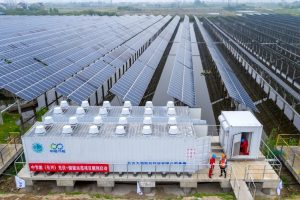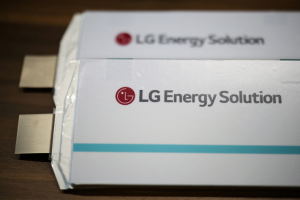In a formal vote on Friday, 10 European countries backed hefty tariffs on electric vehicles made in China, while five opposed the move.
The European Commission said it will stick to its plan to impose the tariffs on Chinese EVs, despite Germany – the bloc’s biggest economy – rejecting them.
It means that proposed duties on Chinese-built EVs of up to 45% will cost carmakers billions of extra dollars to bring cars into the bloc and are set to be imposed from next month for five years.
ALSO SEE: Mass Arrests in India as Samsung Workers’ Protest Drags on
The Commission, which oversees the bloc’s trade policy, has said they would counter what it sees as unfair Chinese subsidies after a year-long anti-subsidy investigation, but it also said on Friday it would continue talks with Beijing.
Compromise possible on minimum prices
The decision has revealed a rift over its biggest trade row with Beijing in a decade. But a possible compromise could be to set minimum sales prices.
In the vote, 10 EU members backed tariffs and five voted against them, while 12 nations abstained from casting a vote, EU sources said.
It would have taken opposition from a qualified majority of 15 EU members, representing 65% of the EU population, to block the proposal.
The result was no surprise, as Reuters reported on Wednesday that the measure was likely to pass with France, Italy and Poland planning to vote in favour.
The region’s biggest economy and major car producer, Germany, voted against the proposal, sources said on Friday.
The EU executive said it had obtained “the necessary support” to adopt the tariffs, although it would continue talks with Beijing to find an alternative solution.
China subsidies seen as excessive
Friday’s vote reflected divisions in Europe on commercial relations with China. Some nations want a firm line against what they see as excessive state subsidies and are mindful of the EU’s failure to impose tariffs on Chinese solar panels a decade ago. China has a share of over 90% of the EU photovoltaic market.
Other countries want to encourage Chinese investment or fear a tit-for-tat trade war.
In what was already seen as a retaliation, Beijing this year launched its own probes into imports of EU brandy, dairy and pork products.
Chief executive Oliver Zipse described the vote as “a fatal signal for the European automotive industry”. He said a quick settlement was needed between Brussels and Beijing to prevent a trade conflict.
Volkswagen said the planned tariffs were “the wrong approach.”
Geely Holding expressed “deep disappointment” in the Commission’s decision, saying it could hinder EU-China economic relations and harm European companies and consumers.
China’s foreign ministry did not immediately respond to a request for comment.
Hungarian Prime Minister Viktor Orban said the EU was headed for an “economic cold war” with China.
However, France’s PFA car association said it was good EU members had backed duties, adding it was in favour of free trade, as long as it was fair.
‘China’s global commercial offensive’
Stellantis said it supported free and fair competition and that the sector was under pressure from ambitious carbon reduction plans and “the Chinese global commercial offensive”.
The EU’s stance towards Beijing has hardened in the last five years. It views China as a potential partner in some issues, but also as a competitor and a systemic rival.
The Commission says China’s spare production capacity of three million EVs per year, which needed to be exported, is twice the size of the EU market. Given 100% tariffs in the United States and Canada, the most obvious outlet for those EVs is Europe.
As part of continued negotiations with China, the Commission could re-examine a price undertaking – involving a minimum import price and typically a volume cap.
A case in point is Volvo Cars, which is majority owned by Geely. The company hopes to avoid hefty tariffs when importing its China-made EVs by reaching an agreement on pricing.
The EU tariffs range from 7.8% for Tesla to 35.3% for SAIC and other companies deemed not to have cooperated with the EU investigation. These tariffs are on top of the EU’s standard 10% import duty for cars.
- Reuters with addtional editing by Jim Pollard
























